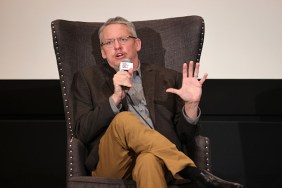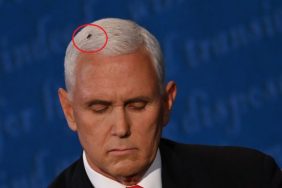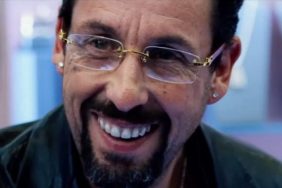Audiences who love superhero movies might be surprised to discover that one slipped under their radar. Sleight, the new film from director and co-writer J.D. Dillard, is the story of Bo (Jacob Latimore), a sleight-of-hand artist who gets in over his head with dangerous drug dealers, and who uses his particular set of skills – and some homemade cybernetic parts – to save himself and his sister. It’s a crime story, a magic story and, somewhat accidentally, also a superhero origin story.
I spoke to J.D. Dillard about his intriguing new genre mash-up movie, and picked his brain about the film’s particular blend of storytelling influences, and what the “magic” of Sleight really represents. And since Dillard is also in talks to direct a remake of The Fly, and co-write the screenplay with his Sleight collaborator Alex Theurer, I inquired about take on the iconic horror material, and found out which franchise inspires his approach.
Enjoy!

BH Tilt
Also: ‘Sleight’ Review | How to Get Away With Magic
Crave: Sleight is a lot of things. It’s a magic movie, it’s a crime movie. Is it also, in your estimation, a superhero movie?
J.D. Dillard: You know, it’s funny. I think it is, but it is somewhat accidentally. We started with Sleight wanting to tell a good character story, and I think even as far as the seed is concerned, I mean I’ve been a fan of magic since I was eleven, twelve years old and got pretty heavily involved with it around then too. We immediately realized that there is this kind of cool intersection between street magic and crime, in that there’s a lot of overlap in the skill sets required to be good at both. I think from there, with that interest, that’s where we found Bo.
And the desire to include this sort of science fiction element really came from Alex [Theurer] and my, my co-writer, it came from our love of science fiction. We had been sci-fi writers first and foremost for a number of years leading up to Sleight and sure, we found this crime and magic idea, but we still were thinking about how do we infuse a little bit of extra genre into it?
So it’s funny, “Chronicle meets Iron Man,” “superhero origin,” all of that stuff? We never said [that] in the creative process, but when people had seen the film we started hearing that for the first time.
How did you feel about that? Was it interesting? Exciting? Were you disappointed because it wasn’t what you were getting at?
No, it wasn’t frustrating at all. It was like, “Oh, right, yeah, okay, that makes perfect sense.” You know, I think for us the thing that was always in the back of our head was that, when you think of “superhero,” I mean obviously you immediately think of what the scale of a movie is going to be. So for us it never felt like we would be allowed to say that because the city is not being destroyed by supervillains and blah-blah-blah-blah-blah. But in terms of what just the core elements of an origin story are, in retrospect, it makes complete sense to us and it’s something that we, even though it’s a bit of an afterthought, we certainly believe that as well.

BH Tilt
Tell me about the origin of the idea to put an electromagnet inside your protagonist, specifically.
Just from the sci-fi aspect, Alex and I kind of keep a running list of things we would like to play with eventually, and a D.I.Y. biohacking, self-augmentation thing has been on that list for a while. When we were sort of wracking our brains over where would the genre component for Sleight come from, we wanted it certainly to be an extension of what his magic would be, and to give him an ability to something that no one else can. Even if he can do something that other people can, he can do it in a way that no one else can.
So it really was just sort of an experience in troubleshooting different ideas of what would make sense for this world and still keep it grounded and still keep it a shade close to possibility. And this sort of electromagnetic telekinesis was where we wound up, and it felt like it could certainly stay under the umbrella of the rules we set with this world.
A lot of other films that deal with the idea of stage magic present themselves to the audience as, in themselves, a bit of a trick. You look at films like The Prestige or the live-action film The Illusionist…
Yup.
In your film we know pretty early on that Bo’s got an electromagnet in his arm. Were you ever tempted to let that play longer, and play it bit more like the speech about the guy with a knife through his hand on the pier?
You know, the reason why we didn’t was because… again, like most things we were playing with, we were really trying to find the way in via the character as early as possible. Ultimately in this film what the device really stands for, beyond giving him an ability, is here we have something that really is a stand-in for self-sacrifice and harm to yourself for a greater purpose. So we wanted the audience to, very early on, understand what his commitment to this is and for that commitment to be borderline scary. It was a much more helpful tool for us, as far as that’s concerned, than it was for it to be necessarily a reveal.
And then the other thing too that we realized very early on in the writing process was, we never tout Sleight the most complicated, nuanced love story or the most nuanced crime story. It’s not going to be as crazy a crime story as The Departed or it’s not the first coming of age story you’ve ever heard of. But for us, the real fun of this movie is blending all these pieces at the same time. When we were writing it we realized, if you actually overcomplicate any one of the many plates that we’re spinning in this film, the entire movie starts to get pretty muddy. So if you need 50 scenes to explain the device, or if you need 40 scenes to sell the complications of the “biting off more than you can chew” story, or the relationship is way too complicated, and back and forth, then it really starts to trip the movie up.
So there is a degree of each individual element unfolding quite linearly just so we can involve as many pieces as we really wanted to in this film. And again, ultimately, it was just an exercise in plate-spinning.

BH Tilt
When it comes your protagonist making all these sacrifices in order to, basically, pull off the best magic trick imaginable, it made me wonder a bit… was there more of a subplot at one point about Bo having an endgame, about him pursuing magic, wanting to be the next Criss Angel, David Copperfield, specifically? Is he pursuing something bigger?
You know, kind of like my own love of magic, there never was a stagy end goal for Bo. I think what we really trying to lock into very early on was just the love of the craft, and there are plenty of people who do things that they love and that is enough of a reason, just to be good at it and just to continue to do something that care about greatly. I think in the varying levels of pragmatism Bo has to show, becoming a famous stage magician is so far out of the immediacy of his life when he’s trying to take care of Tina and make sure they don’t need to move out of this house and all these other things.
So it really is just a vessel to show his passion for that art form. But it’s also why we fill the world out a little bit with his engineering mind. That was really what he had going for him. That was really where his life was heading, and we set up very early on that that was the first thing he had to cut when circumstances hit.
I think Sleight is going to be such a calling card for you, and I think a lot of people are going think of Sleight when they think of you, but you’re also working on The Fly now. Do you think your approach to Sleight is in some respects a preparation for The Fly or is that going to be an entirely different entity?
I think the most important thing is we want to keep making movies, and that’s also why… obviously The Fly is [in its] very early days, and it’s still technically in negotiations and we’re really excited about that, but we are shooting in about seven weeks for Blumhouse. [Laughs.] The process for us won’t change. Sleight is a movie that we shot in sixteen days for very little money here in L.A., but what we knew we could do was make a story that is focused solely on a character who we love. Our next movie, Sweetheart, does the exact same thing.
I think, moving forward to whatever ends up actually being next, it is just making sure that it is a character story first and foremost. And then whether it’s the genre or it’s an I.P. or whatever, that kind of comes second to making sure that we have […] a real emotional core, and let that we can let that be our real guiding light through what the movie is.
I don’t have much more time but I want to ask you this, and I know you’re still in negotiations on The Fly, but I feel as though David Cronenberg’s version of The Fly has in some respects overshadowed the original story, even the original film. I’m curious what you think about the impact of The Fly and also how earlier versions affect your interest in the property?
Well again, really without saying too much, we are definitely early days on this, but in general I feel like a lot of remakes, they focus on remaking the wrong pieces of something. It’s been really helpful, even in talking to Fox about this… one of my favorite examples of a recent franchise reboot is one of their own, the Planet of the Apes. So I think what’s so incredible about that franchise is that when I see the trailer for this third one [War for the Planet of the Apes], and I’m looking into Caesar’s eyes, I still feel the story from the first film. Like, I still feel what is essentially the narrative of a scorned child in the first one.
I think that is an incredible accomplishment and it really is one of my favorite operating franchises right now because Caesar is a character, and they took a franchise that has a pretty massive high-concept, and they initially reduced it to a very human story. And I think in anything that we do with scale, with I.P., if it is akin to a blockbuster, that’s going to be our way in and that’s going to be our guiding light.
Just to focus on the character first and foremost, and if it gets bigger, so be it?
Exactly.
I look forward to The Fly 3: War of the Flies.
[Laughs.] We’d all be so lucky, man.
Twelve Must-See Magician Movies:
Top Photo: Lucianna Faraone Coccia/Getty Images
William Bibbiani (everyone calls him ‘Bibbs’) is Crave’s film content editor and critic. You can hear him every week on The B-Movies Podcast and Canceled Too Soon, and watch him on the weekly YouTube series What the Flick. Follow his rantings on Twitter at @WilliamBibbiani.
The 12 Best Magician Movies Ever
-
Fairy Tale: A True Story (1997)

Legendary magician Harry Houdini plays small but pivotal role in this fantasy adventure, about two young girls who claim to have taken pictures of real-life fairies. Houdini (played by Harvey Keitel) is brought in to prove it's a hoax. The movie claims the fairies were real - even though in real life, Houdini was proven right - but it's still a sweet little story, filled with hope and wonder.
Photo: Paramount Pictures
-
Fright Night (2011)

The better-than-expected remake of the classic 1985 horror comedy co-stars David Tennant as a Las Vegas stage magician who discovers that vampires are real. It's a clever subversion of the "skeptical magician" trope we usually see in fiction, in a film that was already exceptionally funny, thrilling and smart.
Photo: Walt Disney Studios
-
Houdini (2014)

Uli Edel's Houdini is technically a TV mini-series, but it's so handsomely crafted that we won't hold that against it. Adrien Brody stars as the iconic escape artist, whose most elaborate tricks and most dangerous escapes are presented like blockbuster action sequences. Houdini is about as fun as biopics get.
Photo: Lions Gate Television
-
The Illusionist (2010)

Not to be confused with the Edward Norton film of the same name - which was also about stage magic, but which isn't quite as good - Sylvain Chomet's heartbreaking animated feature tells the story of a little girl who thinks magic is real, and the sleight of hand artist who sacrifices everything to avoid proving her wrong. You will weep.
Photo: Sony Pictures Classics
-
Lord of Illusions (1995)

One of Clive Barker's most popular films stars Scott Bakula as Harry D'Amour, a private detective hired to investigate a stage magician who might have had actual supernatural powers. The investigation spirals into madness and horror, and although the film is pure pulp, it's the good kind of pulp. (Track down the director's cut if you can; it is the superior version.)
Photo: MGM/UA
-
Magic (1978)

Anthony Hopkins gives one of his finest performances in the disturbing drama Magic, about a magician who turns to ventriloquism, and gradually loses himself to multiple personality disorder. "Fats" is one of the most disturbing horror characters ever put on celluloid.
Photo: 20th Century Fox
-
Magic in the Moonlight (2014)

Woody Allen's shameless but effective My Fair Lady riff (which was itself a Pygmalion riff), is one of the filmmaker's better films in recent years. Colin Firth plays a stage magician who is enlisted to prove that a psychic (Emma Watson) is a fraud. But then he actually starts to believe in the unknown and turns his life around until... oh, that would be telling...
Photo: Sony Pictures Classics
-
Nightmare Alley (1947)

Tyrone Power gives one of his best performances in Nightmare Alley, a film about a small-time hustler with big-time dreams. Power steals a priceless mind-reading scam off of a fellow carnival worker, builds himself a reputation, and then gets in WAY over his head. Nightmare Alley is an impossibly grim film noir, with a horrifying conclusion that was only "saved" by a last minute, somewhat hopeful denouement, courtesy of the skittish studio heads.
Photo: 20th Century Fox
-
Now You See Me (2013)

The second Now You See Me is a lot of fun, but the novelty is more exciting in the original film, about a group of stage magicians who pull off a series of elaborate heists. The highlight: Dave Franco using sleight of hand to amplify his kung fu skills, in one of the weirder and more entertaining fight scenes in recent memory.
Photo: Summit Entertainment
-
Oz the Great and Powerful (2013)

Purists scoffed, but Oz the Great and Powerful turned out to be an intriguing film about the nature of showmanship, with the shyster "wizard" arriving in Oz, only to discover that his trickery has consequences. It's a smart statement about the nature of this prequel: a distractingly colorful CGI fantasy that obfuscates a somewhat subversive commentary about the nature of contemporary blockbuster filmmaking, and the irony of the theatrical concept of "prestige."
Photo: Walt Disney Studios
-
The Prestige (2006)

Speaking of prestige, Christopher Nolan's sumptuous period piece The Prestige marvels at its own cleverness, pulling the rug out from the under the audience many times over the course of the film. But the story - about two rival magicians destroying each other, repeatedly - holds up long after you know how the trick got pulled. It's an inventive but sad story about the tireless pursuit of applause.
Photo: Buena Vista Pictures
-
Terror Train (1980)

This 1980 slasher is better than most films of its ilk, with a solid cast, gorgeous lighting and a somewhat clever screenplay. But best of all is a young David Copperfield, more or less playing himself, wowing the cast with his close-up illusions and trying to trick the audience into thinking he's anything more than a red herring. (OR IS HE...?)
Photo: 20th Century Fox







